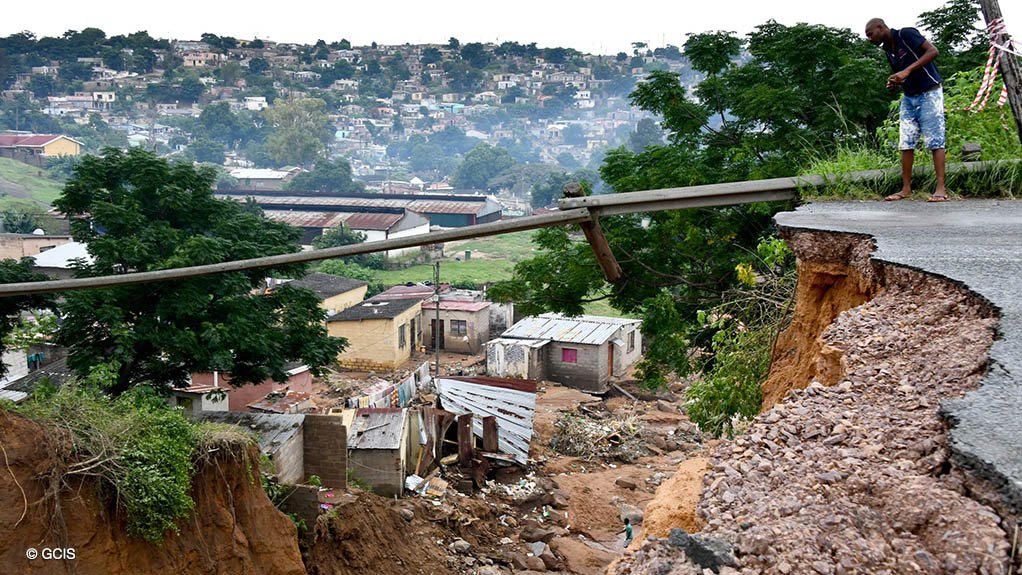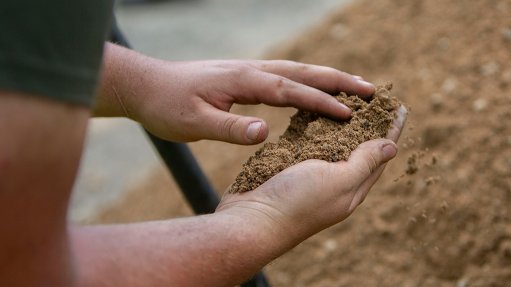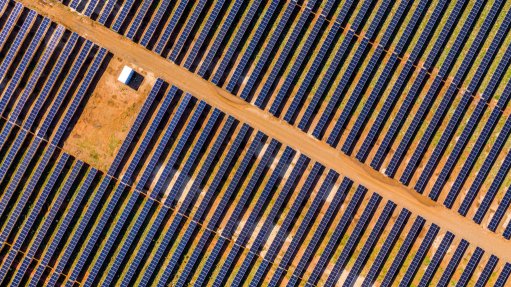Global warming made S Africa's recent floods twice as likely – study
Global warming made the heavy rains behind South Africa's devastating floods last month twice as likely as they would have been if greenhouse gas emissions had never heated the planet, scientists said on Friday.
Flash floods around the east coast city of Durban killed 435 people, left tens of thousands homeless and caused R10-billion worth of damage to roads, power lines, water pipes and one of Africa's busiest ports.
The World Weather Attribution group analysed weather data and digital simulations to compare today's climate to that of before the industrial revolution in the late 1800s, when the world was about 1.2°C cooler.
"The results showed that an extreme rainfall episode such as this one can now be expected to happen about once every 20 years," a report on the study said.
"Without human-caused global warming, such an event would only happen once every 40 years, so it has become about twice as common as a result of greenhouse gas emissions."
It added that when extreme downpours do happen, they can be expected to be 4-8% heavier than if no human-induced global warming had occurred.
Attributing specific weather events to climate change is a tricky business that deals in probabilities, never certainty. But co-author Friederike Otto, from Imperial College London, said the study had examined data from the wider region, not just Durban.
"Looking at the larger region is actually a very meaningful way of assessing the impact of climate change. (The study) means that, in any given year, there is a 5% likelihood of such an event occurring," she told a news conference, versus 2.5% in the absence of global warming.
Africa's southeastern coast is on the front line of seaborne weather systems that climate change is making nastier, scientists say. South Africa's tropical northern neighbour Mozambique has suffered multiple cyclones and floods in the past decade, including one in April that killed more than 50 people.
"The patterns we see in southern Africa are consistent with what we are seeing elsewhere in the world," Jasper Knight, a geoscientist at Johannesburg's University of Witwatersrand, not involved in the study, told Reuters.
Article Enquiry
Email Article
Save Article
Feedback
To advertise email advertising@creamermedia.co.za or click here
Press Office
Announcements
What's On
Subscribe to improve your user experience...
Option 1 (equivalent of R125 a month):
Receive a weekly copy of Creamer Media's Engineering News & Mining Weekly magazine
(print copy for those in South Africa and e-magazine for those outside of South Africa)
Receive daily email newsletters
Access to full search results
Access archive of magazine back copies
Access to Projects in Progress
Access to ONE Research Report of your choice in PDF format
Option 2 (equivalent of R375 a month):
All benefits from Option 1
PLUS
Access to Creamer Media's Research Channel Africa for ALL Research Reports, in PDF format, on various industrial and mining sectors
including Electricity; Water; Energy Transition; Hydrogen; Roads, Rail and Ports; Coal; Gold; Platinum; Battery Metals; etc.
Already a subscriber?
Forgotten your password?
Receive weekly copy of Creamer Media's Engineering News & Mining Weekly magazine (print copy for those in South Africa and e-magazine for those outside of South Africa)
➕
Recieve daily email newsletters
➕
Access to full search results
➕
Access archive of magazine back copies
➕
Access to Projects in Progress
➕
Access to ONE Research Report of your choice in PDF format
RESEARCH CHANNEL AFRICA
R4500 (equivalent of R375 a month)
SUBSCRIBEAll benefits from Option 1
➕
Access to Creamer Media's Research Channel Africa for ALL Research Reports on various industrial and mining sectors, in PDF format, including on:
Electricity
➕
Water
➕
Energy Transition
➕
Hydrogen
➕
Roads, Rail and Ports
➕
Coal
➕
Gold
➕
Platinum
➕
Battery Metals
➕
etc.
Receive all benefits from Option 1 or Option 2 delivered to numerous people at your company
➕
Multiple User names and Passwords for simultaneous log-ins
➕
Intranet integration access to all in your organisation





















